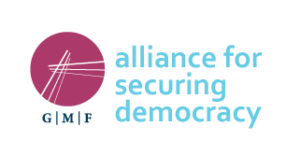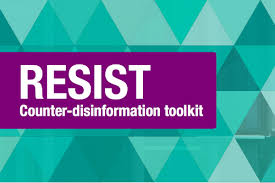 Differing views between democracies and autocracies on the role of information in society create an asymmetric information domain. The current contest for this information space—often framed as “information warfare”—plays to authoritarians’ strengths. The paradox for liberal democracies in this environment is that in quashing adversarial information efforts outright, they diminish the values of openness and inclusion for which they stand. And they risk creating the information environment that authoritarian regimes advance, according to Laura Rosenberger and Lindsay Gorman of the Alliance for Securing Democracy.
Differing views between democracies and autocracies on the role of information in society create an asymmetric information domain. The current contest for this information space—often framed as “information warfare”—plays to authoritarians’ strengths. The paradox for liberal democracies in this environment is that in quashing adversarial information efforts outright, they diminish the values of openness and inclusion for which they stand. And they risk creating the information environment that authoritarian regimes advance, according to Laura Rosenberger and Lindsay Gorman of the Alliance for Securing Democracy.
 To succeed in the information arena, democracies need to reframe the contest to capitalize on their own advantages and exploit authoritarian weaknesses. This reframing requires aligning the goal of advancing the democratic worldview of information with the tactics of the information contest itself. It is this key element that is missing from democracies’ current approach to the information environment that gives authoritarians the upper hand—right now, the authoritarian worldview and “information warfare” tactics are aligned, they write in How Democracies Can Win the Information Contest.
To succeed in the information arena, democracies need to reframe the contest to capitalize on their own advantages and exploit authoritarian weaknesses. This reframing requires aligning the goal of advancing the democratic worldview of information with the tactics of the information contest itself. It is this key element that is missing from democracies’ current approach to the information environment that gives authoritarians the upper hand—right now, the authoritarian worldview and “information warfare” tactics are aligned, they write in How Democracies Can Win the Information Contest.
Several characteristics should guide how democracies organize themselves to engage in this contest, they write in an essay for The Washington Quarterly:
- First, a democratic approach to the information contest must be civilian-led. …Democratic governments, therefore, should identify a civilian entity responsible for coordinating their engagement in the information space…. Crucially, this entity should not be authorized to
remove content and must recognize the limitations of governments as direct messengers while empowering outside voices that promote quality information…. - Second, a civilian-led approach needs to put coordination with online information platforms at the center of its mission. This coordination will require government to be more transparent in sharing information with private companies and provide assessments of the strategic information environment and particular threat actors….
- Third, a civilian-led approach needs to be supported by robust and holistic assessments of the information environment. This support will require coordination among the intelligence community, private sector, and civil society. For example, since 2016, the Estonian Foreign Intelligence Service has released an annual report to the public assessing the threat of Russian aggression and influence in Europe….RTWT







